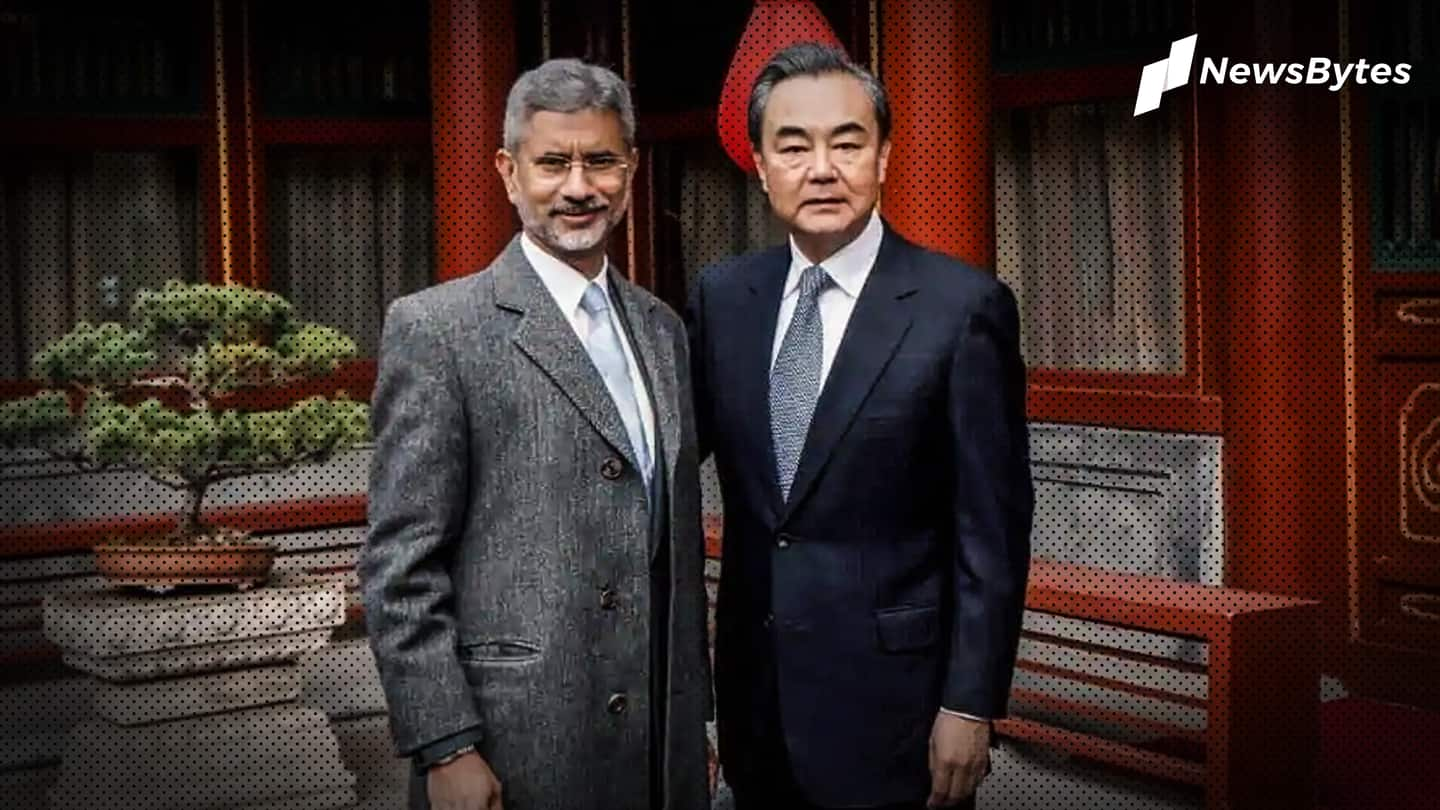Jaishankar tells Wang about China's transgressions, countries formulate five-point plan
What's the story
In the two-and-a-half-hours long meeting with Chinese Foreign Minister Wang Yi, India's External Minister Dr. S Jaishankar strongly protested the heavy presence of the People's Liberation Army (PLA) along the Line of Actual Control (LAC).
The two ministers, who met in Moscow, agreed to a five-point plan to disengage and de-escalate at the de-facto border.
However, reports suggested Beijing's stand may hardly change.
Context
Background: India and China's stand-off was sparked over infrastructure push
The nuclear-armed neighbors are engaged in an eyeball-to-eyeball conflict since April-May after Beijing raised an objection to India's infrastructure projects.
In June, for the first time in decades, a violent clash happened in Eastern Ladakh, wherein 20 Indian soldiers were martyred. China didn't acknowledge its casualties.
Thereafter, talks at military and diplomatic levels were started to douse tensions, but they remained inconclusive.
Talks
India won't compromise on sovereignty, but didn't shut dialogue channels
New Delhi has constantly criticized China's "expansionist intentions," but also maintained that differences can be resolved through dialogue.
Before Jaishankar met Wang, for the first time since relations nosedived, Defense Minister Rajnath Singh also met his Chinese counterpart Wei Fenghe, but the talks didn't yield results.
India hoped that the involvement of Jaishankar, who served as an ambassador to China, would help its cause.
Statement
PLA's provocative behavior shows it disrespects bilateral agreements: India
At the anticipated meeting, India told China that the large concentration of troops along LAC defied 1993 and 1996 agreements.
The presence of troops sparked flashpoints in the area, India added.
India also said the "Chinese side has not provided a credible explanation for this deployment." It was also stated that PLA's provocative behavior reflects its disregard for bilateral agreements.
Quote
Indian troops following protocol, China must too
"The Indian side clearly conveyed that it expected full adherence to all agreements on the management of border areas and would not countenance any attempt to change the status quo unilaterally. It was also emphasized that Indian troops had scrupulously followed all agreements," sources told PTI.
Five-point plan
Quick disengagement, troops must maintain distance, said the five-point plan
In the terse meeting, India and China formulated five points to guide the process of disengagement.
"Both sides should take guidance from the consensus of the leaders on developing India-China relations, including not allowing differences to become disputes," read the first point.
In the second point, both sides agreed that the tensions don't serve their best interests, hence, disengagement must happen quickly and troops should maintain a distance.
Details
Both countries agreed to avoid steps, that could escalate situation
The third point mentioned about abiding by existing agreements and avoiding activities that could escalate the matter.
"The two sides will continue communications through the Special Representatives mechanism, and meetings of the Working Mechanism for Consultation and Coordination on border affairs will continue," read the fourth point.
Finally, India and China said they should expedite "work to conclude new confidence-building measures."
China's stand
Wang outlined China's stern position: Beijing
After the meeting, Beijing released an official statement, telling that it was willing to "support enhanced dialogue" between troops.
According to China's Foreign Ministry, Wang clarified the country's position, pertaining to the border to Jaishankar, adding that provocative actions like firing must stop.
To recall, China alleged Indian troops fired warning shots this week, but Indian Army declared it was PLA that used firearms.
Statement
China also wants troops, that "trespassed," to return
Reiterating the stance that the Indian Army "trespassed," China's Foreign Ministry said it was important to move back all personnel and equipment.
"What China and India need right now is cooperation and not confrontation, and mutual trust, not suspicion. When the situation gets difficult, it is all the more important to ensure the stability of the overall relationship and preserve mutual trust," said China.
Reading
Rather than pulling back troops, Wang spoke about "thinning"
According to HT, Wang couldn't explain why personnel amassed at LAC and only spoke about the "thinning" of troops.
But Jaishankar told him "thinning approach" was pointless in areas where both armies are dangerously close.
"The statement issued by the Chinese foreign ministry is their perception of the dialogue which was not agreed to by the Indian side," an official told the daily.
India's stand
Seemingly, India isn't trusting China and is matching PLA's build-up
After the meeting, India is certain China's position won't change, people in the know told News18.
In the last 48 hours, China significantly increased build-up in the Finger 4 area. Hence, India has decided against letting its guard down.
While New Delhi wants peace and tranquility, it isn't willing to bargain on "even a single inch" of territory, sources told the portal.
